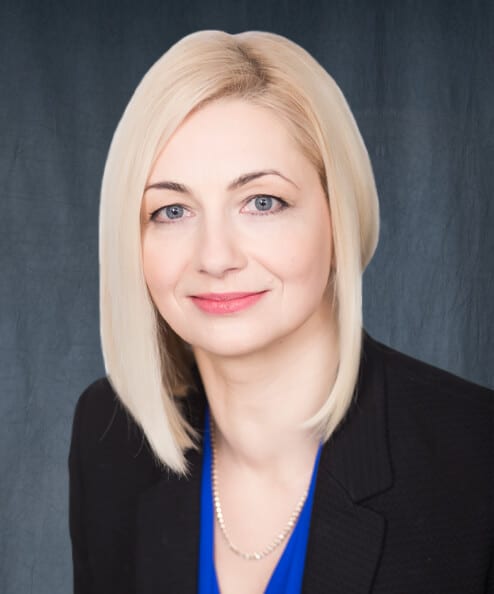Riga, Latvia – Evita Lune, Partner for Global Digital Economy at Pedersen & Partners interviewed Marili Merendi, Associate at Karma Ventures.
Marili Merendi is an Associate at karma.vc — an early stage venture capital firm specialized in late seed and series A investments in Europe’s most promising tech startups. At karma.vc Marili covers deal sourcing, due diligence, financial valuation, and all-round portfolio management tasks.
Her previous experience is in finance and investment advisory positions at various international organizations such as: Kraft Foods, UBS Investment Bank and UBS Wealth Management in Zürich. Marili holds an MSc in Business Economics from the University of Amsterdam, complemented by the extended studies in the US, Norway, and Switzerland. She is a music fan and outdoor sports enthusiast.
Evita: Let’s start by understanding, what is your job about at Karma?
Marili: To tell you this, let me briefly introduce Karma Ventures. We are a Pan-European venture capital fund operating out of Estonia. We invest in early-stage technology companies all over Europe, and since our establishment three years ago we’ve done eleven investments, six of which are in the Baltics: one is in Riga - Sonarworks, two in Sweden, two in Finland and one in the UK. Our focus is on startups that build unique tech heavy solutions and that solve big customer problems. We’ve noticed that our preference is mostly towards B2B software startups.
I work on deal sourcing and the initial analysis of the deal and company characteristics. Once we decide to proceed with a deal, my tasks include working with my team by preparing due diligence and documentation. When we have closed the deal, I continue to actively work with portfolio companies. However, while part of my job is facilitating the analytically structured process in working with startups, the other part is trying to enable the founders to leverage their own potential through collective knowledge sharing and open discussion with them.
With regard to Karma’s value add, this is a question to our portfolio companies as they are the true judges here. From practical aspects we typically focus on the business stage where there is an early evidence of product-market fit of the solution, and where the company is about to build the scaling business processes and culture for fast acceleration. What it usually means, is that we work together with the founders on business strategy and recruiting, as we believe that one can only scale by hiring great people that bring true value and know-how on scaling and making a company stronger and better. We don’t expect the founders to be experts at this, but we expect them to be able to attract the talent that have the necessary expertise.
"We believe that one can only scale by hiring great people that bring true value and know-how on scaling and making a company stronger and better.”
Evita: Can you share a bit more about the investments that you have made? You mentioned that there are 11 different companies, half or which are in the Baltics mainly in B2B field.
Marili: Sure. Up to date we have mostly invested in companies targeting B2B customers, but we also have a few marketplaces that bring together the supply and demand side. For example, in Lithuania we invested in CGTrader, which is a 3D model marketplace; in Estonia we invested in HR marketplace/platform MeetFrank that brings together people looking for an interesting job and companies looking for great talent while both may not explicitly state this interest. Regarding other companies in our portfolio, we have investments in developer tools such as AppGyver and Plumbr; machine intelligence based emotion recognition software provider Realeyes; in Riga we have investment in Sonarworks, which is a software for headphone sound calibration enabling music fans to hear more authentic sound; we also have big data analytics platform SpectX; cloud based automated computational fluid dynamics software provider Adaptive Simulations; legal tech leader TrademarkNow; and finally B2B as well as consumer focused non-intrusive home security provider Minut from Sweden.
Evita: What about the technology side of these deals and in general, reviewing potential investments, how do you manage to judge if this will work or not?
Marili: When we look at an opportunity, we consider several inputs, such as market trends: what is trending globally, where the consumers and the businesses are heading to and what business models are in place. Then we analyse the competition: what type of solutions the competitors provide, how many alternatives are out there for the customer to consider, the funding of the competition, etc. All this gives us a fairly good indication of where the innovation and its financing is heading to. We also conduct reference checks with the customers and business partners of the startup under evaluation, meaning that we directly ask customers how relevant certain technology is for them and how it impacts their business. We do not conduct technical due diligence in house, but rather get this input from customer references in order to build the thesis whether the startup is on a path to become a global player. We tend to take customer input seriously as it is fair to assume that before they decided to pay for a solution, they looked at various alternatives, thus providing us with a really good comparison and understanding of the provided value. Then, of course, we look at the team trying to estimate the existing skill set as well as the potential to adapt to life’s challenges that one encounters while trying to build a unicorn.
Additionally, unlike many other funds we have a tech advisory meeting with the startups, where two of the Skype founding engineers — Jaan Tallinn and Ahti Heinla — bring additional input to our decision making process. We are lucky to leverage their know-how and global experience of building and developing Skype, putting together and investing in a portfolio of global technology companies previously, and currently being active in an international scene of thriving technology innovation.
Read the whole interview
here.

Evita Lune is a Partner who drives the firm’s Global Digital Economy. She has completed over 50 senior level assignments in 29 countries within this practice, out of her total portfolio of over 600 assignments. Ms. Lune works extensively with FinTech clients from the Baltic sea region (Scandinavia, Baltics, Poland) and supports their global expansion plans in all continents by providing effective executive search solutions. As a team leader and regional director, she manages Pedersen & Partners teams in Poland, Baltics and Belarus. Her previous experience includes three years with the Stockholm School of Economics in Riga as the Executive MBA Program Director and six years with Shell in international and regional marketing management functions in Riga, Budapest, and Brussels.
Ms. Lune was a speaker at the CEE FutureTech congress in Warsaw - one of the most important business summits in Central and Eastern Europe and participated in Blockchain Pre-Accelerator Program at University of Latvia. She is also a blogger for RigaTechGirls, a Jury Member of CEE Capital Markets and FinTech Awards and a Contributing Advisor at the Digital Freedom Festival. Ms. Lune was recognized by Forbes as one of the top 25 most influential women in Latvia for two years in a row.
Pedersen & Partners is a leading international Executive Search firm. We operate 57 wholly owned offices in 53 countries across Europe, the Middle East, Africa, Asia & the Americas. Our values Trust, Relationship and Professionalism apply to our interaction with clients as well as executives. More information about Pedersen & Partners is available at www.pedersenandpartners.com
If you would like to conduct an interview with a representative of Pedersen & Partners, or have other media-related requests, please contact: Anastasia Alpaticova, Marketing and Communications Manager at: anastasia.alpaticova@pedersenandpartners.com


